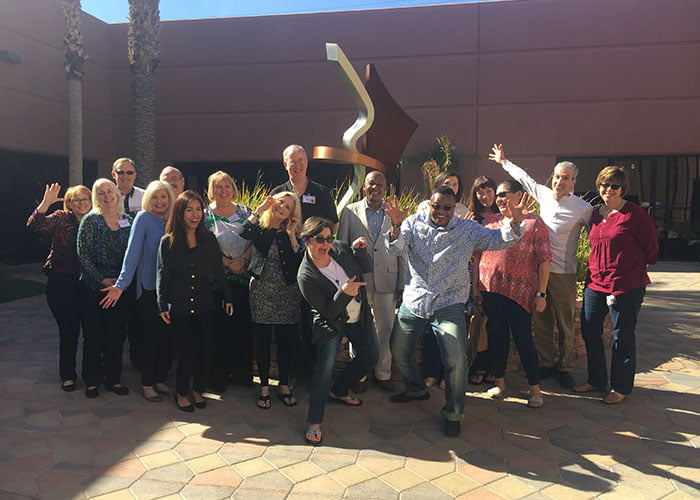I have a short drive to work each day and like to listen to my local, non-profit radio program on NPR (National Public Radio). What I like so much about NPR is that I can count on them to search for the story behind the headlines. NPR shares the news of the World (even negative news) and its impact on people, on culture, on politics and more in a story form with metaphors and often with the voices of those who are impacted or part of the story. Often, this connection will have me looking for and finding hope in the most unlikely stories. And, what reality is being created by the stories that we tell? What meaning are we making in our conversations and what social agreements are emerging? What Appreciative Inquiry Principles (link to principles on website) are at play here and how might I use this as my personal learning or as a Trainer, Facilitator, Coach?
I have been fortunate to work with the Open Society Initiative for Eastern Africa (OSIEA) and follow their work throughout the World. This article, Voices from the White Working Class Community in Manchester, rings familiar with a few groups that I have been working with in the U.S. Most of us want the same things, Love, Respect, Freedom, Peace, Acceptance, Hope, Inspiration, Health, Family, and Friends. It is our shared humanness that connects us.
A foundation of Appreciative Inquiry is The Constructionist Principle, derived from ‘Social Constructionist’ theory, states that the language we use shapes our social reality. Meaning is made in conversation, and what emerges as knowledge is a broad social agreement created among people through communication.
The Constructionist Principle recognizes that there are many different ways of viewing social reality and many truths, and that we can replace “absolutist claims or the final word with the never-ending collaborative quest to understand and construct better options for living” (David L Cooperrider, Appreciative Inquiry: A Positive Revolution In Change).
What does this mean in practice? When our mindset or paradigm is challenged, it means challenging almost everything we hold to be true. When people change their beliefs, reality changes. We saw that when we worked on the Macon Miracle. An inquiry with 4500 people.
Question: How do we contribute to the dialogue? What questions will you ask? What stories will you share?
TO READ THE WORDS CREATE WORDS ® JUNE 2014 NEWSLETTER ONLINE, PLEASE CLICK HERE>>


Add your comment now using your favorite social account or Click Here To Login
